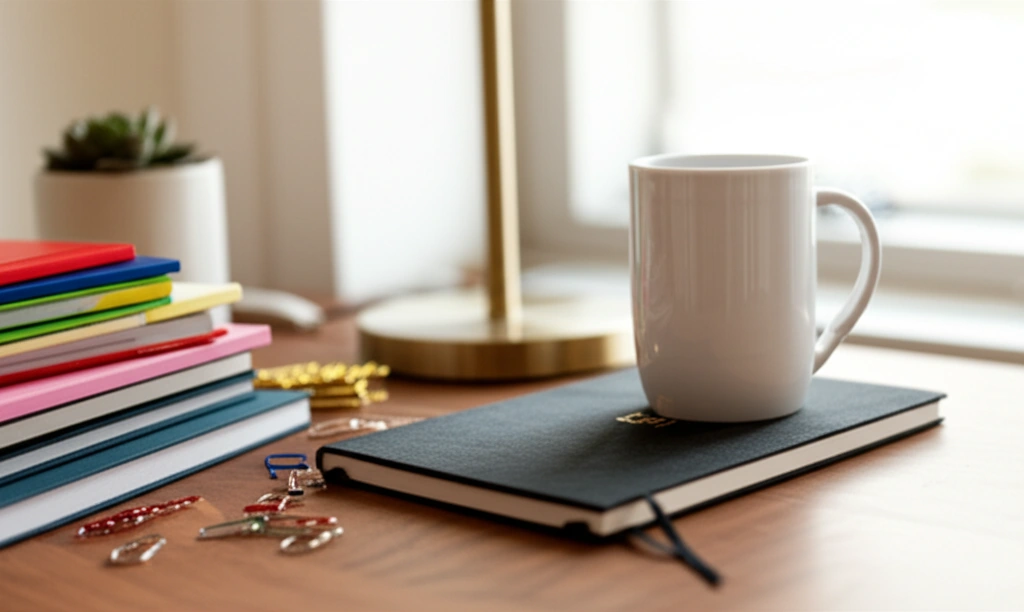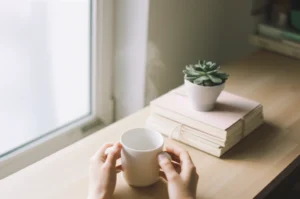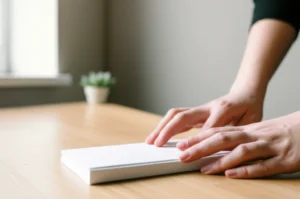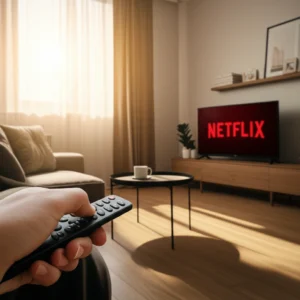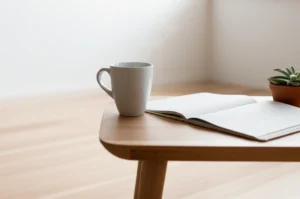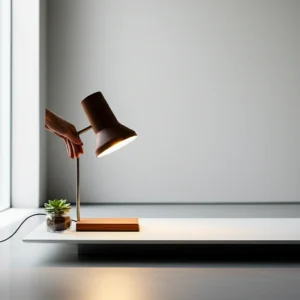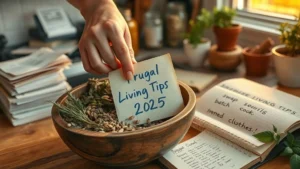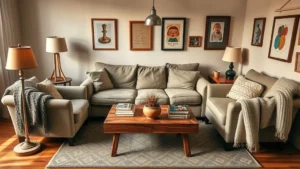Start by asking yourself this: what if you could save more without feeling like you’re actually giving anything up? What if less mess meant less stress — and maybe even more joy? That’s what a lot of people are hoping to get from minimalism these days. But before you take the plunge and start tossing out half your stuff, let’s get super real about the pros and cons of minimalism. It’s not all Instagram-worthy calm or tidy closets. There’s another side to it, too.
This article doesn’t waste your time with fluffy intros or a lecture about buying less. Instead, I’ll lay out the honest truths, the subtle wins, and the sneaky downsides. My goal? Help you figure out whether the minimalist lifestyle benefits will genuinely work for you — or if you’ll just end up frustrated, bored, or feeling a little lost in an empty apartment.
Why Even Weigh The Pros?
Listen, everyone loves the idea of a reset — like hitting ‘refresh’ on your cluttered life. But going minimalist isn’t just about decluttering your house. It’s a bit like choosing a new lens for your entire life. So, who’s this actually good for? If you’re someone who craves breathing space (physically and mentally), can handle some awkward social moments, or just loves a clean slate, minimalism might be right up your alley. Busy professionals, folks tackling clutter anxiety, or eco-warriors looking for more sustainable habits are usually the first to jump in[1].
But here’s the raw truth: not everyone who tries minimalism finds it liberating. Parents with young kids (who are always accumulating stuff), creative souls with stacks of supplies, or those who can’t easily replace things due to budget or location may struggle. If you’ve ever cleared out a closet only to regret three of your donations a week later, you know exactly what I mean. It’s worth taking a hard look at why minimalism t’s work for some people — it’s not because they’re “wrong,” it’s because the approach and timing have to match your real life.
The Shiny Benefits
Let’s not pretend there aren’t some pretty freaking great upsides to going minimalist. Some of these might sound obvious, but there’s a real depth to how they play out over time.
Less Clutter, Less Chaos
There’s this magical thing that happens when you ditch the mountain of “just in case” stuff: you stop tripping over your life. Mornings? Suddenly faster. Finding keys? Easy. Your home? It can actually feel bigger, brighter, and… just plain better. Minimalist spaces help with focus and rest because there’s less visual ‘noise’ screaming for your attention[6][1]. Science even backs this up: several studies link clutter to higher stress, anxiety, and poor sleep. Who wouldn’t want that fixed?
You Save — For Real
This is one of those minimalist lifestyle benefits that almost sneaks up on you. You don’t have to be frugal to notice your bank account isn’t bleeding out for Target runs, home upgrades, or “treat yourself” gadgets you actually end up never using. Many minimalists swear by simple tricks — like the 30-day rule (wait, then buy) or capsule wardrobes. When “just browsing” isn’t your hobby anymore, your savings add up[2]. Plus, there’s less guilt about “wasted” money when you’re only buying what you value most.
Your Time Gets A Glow-Up
Less stuff = less time cleaning, maintaining, searching, and shopping. That time can go to what matters most: reading, traveling, side hustles, or just taking an unapologetic nap. One minimalist I know said switching to a tiny wardrobe, then decluttering every drawer, freed up hours every week for “life stuff” she used to ignore. If you ever wished for more time, this is a sneaky practical way to actually get it back[1].
Clarity And Confidence
Every decision you make (should I buy this? Am I using that?) slowly tunes you in to what you actually give a damn about. Minimalism isn’t just about less — it’s about more intention. Folks often say they feel “lighter” mentally and more confident making decisions when they’re not swimming in stuff[6][1]. It sounds woo-woo until you realize it means spending your energy only on what truly matters — and being proud of it.
It’s Kinder To The Planet
Want an easy eco-win? Minimalism usually means less trash, less consumption, and less pollution — because you’re not constantly feeding the “buy-new, toss-old” machine. People swapping giant homes for smaller spaces, or stacking up fewer gadgets, are low-key joining the movement for sustainability. According to a recent study, this actually moves the needle, reducing personal carbon footprints and resource use in a real, everyday way[5].
But…Let’s Get Real: The Downsides
Here’s where the honest part kicks in. Every “pro” comes with a potential “con.” If you only see the bliss side, you risk feeling disappointed or isolated down the road. Let’s dig in.
Regret (And Sometimes, Sadness)
You ever donated something in a decluttering frenzy, then needed it three months later? Yeah, me too. That sucks. Sometimes you’ll miss a book, a cozy sweater, or family keepsakes you ditched to “live lighter.” For lots of us, stuff = memories. Minimalism can sting if it’s done too fast or too strictly[3].
It Gets Lonely (Or Weird)
Not everyone’s a minimalist, and friends or family might find your empty shelves unsettling — or worse, judge you for it. “So, is everything OK?” or, “Do you need to borrow a couch?” are actual questions minimalists have been asked! Special occasions can get weird, too… how do you tell your mom you don’t want birthday gifts? If you’re not careful, minimalism can lead to feeling a little isolated or misunderstood, especially in a culture obsessed with “more”[1][2]. Handling those conversations takes not just patience, but guts.
For a deeper dive into this, check out disadvantages of simple life — sometimes simplicity gets mistaken for being “boring” or uninterested, when that’s not the case at all.
Overthinking Everything
Some minimalists end up getting stuck. Imagine spending five minutes debating whether to keep a spoon. When you whittle down your possessions, it’s easy to start overvaluing the things you still have, which creates new stress — the exact thing you were trying to avoid[3]. Sometimes, focusing so hard on “just enough” means you can stop yourself from actually enjoying life. Don’t let the pursuit of less make you anxious about every shopping trip or birthday party.
Losing Your Hobbies Or Comforts
This one catches many people off guard. When you get rid of “extras,” it’s easy to toss out genuine pleasures: art supplies, board games, your favorite guilty-pleasure cookbooks. Suddenly, life feels a little… monochrome. Minimalism shouldn’t mean giving up hobbies or living spartan just to fit an aesthetic. Good minimalists make exceptions for things that fuel joy, creativity, or relaxation.
It’s Easier For Some Than Others
Let’s be clear: choosing minimalism is easier for someone with resources, access, and options. If you live paycheck to paycheck, can’t easily replace things, or share a home with people who love their stuff, radical minimalism just isn’t realistic — and it shouldn’t be. Sometimes, what looks like “minimalism” is just a privilege to decide how much you let go, not a universal lifestyle. That’s why so many people wonder, “is minimalism worth it for me?” and never get a straight answer. If you want more on this topic, here’s a useful link: is minimalism worth it.
Losing Your Identity
Some people express themselves through what they own: clothes, art, books, or quirky collections. Getting rid of all that can mean losing a thread of your personality. Minimalism should feel freeing — not like you’re erasing yourself.
Minimalism Is Hard To Maintain
Transitions take work, but staying minimalist is even tougher. Ever heard the phrase “nature abhors a vacuum”? If you’re not intentional, closets refill, collectibles creep back, and suddenly you’re back to square one. Maintaining minimalism is about daily choices — a lifestyle, not a one-time event.
Minimalism vs Maximalism: Where Do You Land?
It helps to know there’s no one right way to live. Some people thrive on clean lines and white walls, while others find joy in a cozy, eclectic, maximalist space bursting with personality. Both have legit upsides — minimalism makes for easy cleaning and focus, but maximalism can spark creativity and make every corner feel like “you.” Curious about the other side? Read up on the pros and cons of maximalism and see if something clicks.
| Minimalism | Maximalism |
|---|---|
| Tidy, calm, less cleaning | Personal, creative, story-rich |
| No wasted money on extras | Space for hobbies, display what you love |
| Easy moves and resets | Feels cozy, expressive |
| Can get lonely, spartan | May feel cluttered or overwhelming |
How To Actually Try Minimalism (Without Going Nuts)
You don’t need to go full “live out of a backpack” to feel the perks. In fact, gentle minimalism — let’s call it “value-based minimalism” — is often more practical and enjoyable. Here’s a low-stress way to start:
- Pick one spot: Start small — like your nightstand or junk drawer. Win there, then scale up. Don’t try to Marie Kondo your whole house in one weekend.
- Make a ‘maybe’ box: Box up what you’re unsure about. If you don’t reach for it in thirty days, you probably don’t need it (but you haven’t lost it yet, so there’s no panic).
- Declutter by category, not location: Clothes first, then books, then kitchen, etc. Prevents decision burnout.
- Keep your joys: If painting, reading, or baking is your thing, keep what you need — guilt-free. Minimalism isn’t about self-punishment.
- Talk openly with your people: Whether it’s your partner, kids, or roommates, get everyone on board (or at least, get permission to only tackle your stuff at first).
- Adjust if it stops working: If you find minimalism making you anxious, lonely, or bored, reintroduce whatever you miss. Read why minimalism t’s work for relatable tips if you hit any walls.
Final Thoughts: Try Less, Enjoy More
So, after all that, what’s the real story on the pros and cons of minimalism? For a lot of us, it can be life-changing: less clutter in your home, more clarity in your day, and even extra money in your pocket. But here’s the part nobody should sugarcoat: it’s not a magic pill, and it’s not for everyone, at least not in its most extreme forms. Minimalism works best when you make it yours — keeping the parts that add joy, ditching the rules that don’t.
At the end of the day, I think a healthy dose of “less” can help almost anybody — as long as you give yourself permission to keep what matters and evolve your style as you grow. Try it for a week. Start with a drawer. Notice what feels lighter. Tell a friend what you’re doing — or better yet, do it together. And don’t forget to be kind to yourself, no matter how much stuff you end up keeping or letting go.
What do you think — is a minimalist lifestyle calling your name, or does it feel way too extreme? If you’ve tried it, share how it worked out for you, good or bad. And if you have questions or need some gentle encouragement, give a shout. Here’s to finding your balance — whether it’s with less, more, or somewhere comfortably in between.

